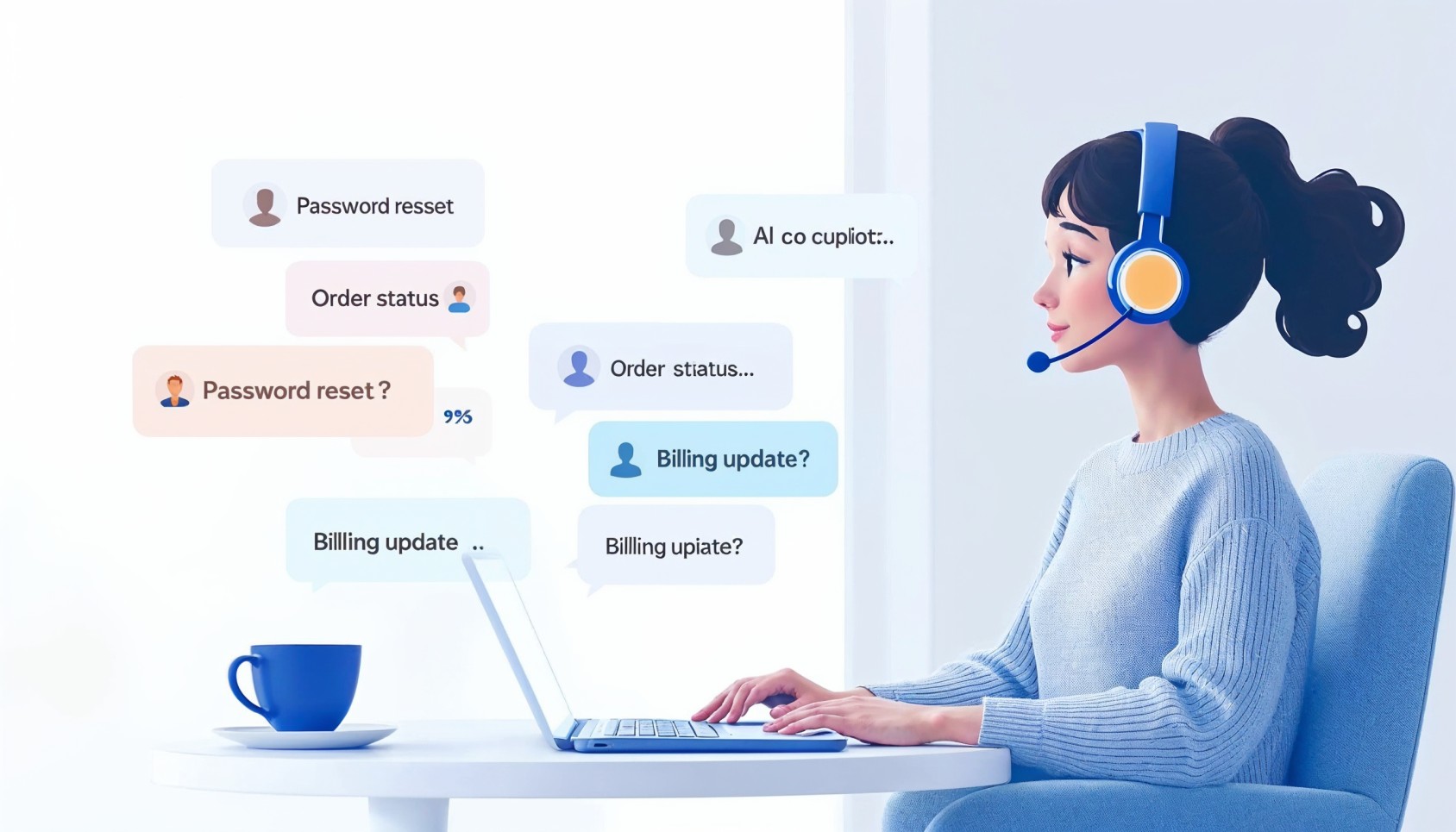Every modern business understands the value of excellent customer service, but delivering it consistently without overburdening your support team is a different story. As digital platforms grow and customer expectations rise, managing a high ticket volume becomes one of the most critical challenges for support teams.
Decreasing customer support ticket count isn't about limiting customer interaction it's about building better, more intelligent systems that enable customers to take care of problems quickly. Let's examine how companies can reduce ticket counts strategically while enhancing customer satisfaction, agent efficiency, and overall operational effectiveness.
Root Causes of High Ticket Volume
Before implementing solutions, it’s important to analyze why ticket volumes are so high. Often, a spike in support requests reflects one or more underlying issues such as:
- Poor onboarding experiences that leave users confused
- Repetitive or redundant queries that could be automated
- Inadequate self-service options like FAQs or help centers
- Delayed resolution times leading to follow-up inquiries
- Product or UX friction that causes preventable confusion
Addressing these pain points holistically allows businesses to reduce tickets without sacrificing service quality.
Build a Robust Self-Service Ecosystem
The foundation of ticket volume reduction is empowering customers to find answers on their own. Today’s users prefer self-service options over waiting in a queue, especially for basic queries.
A well-structured knowledge base, dynamic FAQs, tutorial videos, and in-product tooltips can significantly lower incoming requests. But it’s not just about dumping information it's about making that information accessible, searchable, and relevant.
Intelligent self-service systems powered by AI can take this a step further. Tools that surface context-aware solutions based on user behavior reduce the need for tickets altogether. When customers can resolve issues in real-time, ticket volumes naturally decline, and satisfaction increases.
Let Your Customers Help Themselves
Turn common questions into instant answers with AI-powered self-service that actually works.
Launch Smarter SupportAutomate Repetitive Interactions with AI-Powered Agents
A large percentage of customer inquiries are predictable and repetitive. “How do I reset my password?”, “What’s the status of my order?", “How do I update billing details?”. These aren’t questions that require a human touch every time.
AI-powered chatbots and virtual agents can handle such common requests instantly and accurately. Unlike traditional scripts, modern AI assistants like those offered by PerfectCSR AI can interpret intent, personalize responses, and even escalate complex cases when needed.
Automated customer service doesn’t just cut ticket volume it also ensures that human agents focus their energy on high-impact interactions, reducing burnout and improving resolution quality.
Improve First Contact Resolution (FCR) Rate
Another major driver of repeat tickets is poor first contact resolution. When customers don’t get their issue resolved on the first try, they naturally re-engage. This snowballs into higher volumes, longer wait times, and declining satisfaction.
Improving FCR begins with well-trained agents, clear escalation workflows, and access to centralized customer data. But it’s also about empowering support staff with AI copilots intelligent systems that suggest answers, autofill responses, and surface contextual information during a live interaction.
When agents can resolve issues faster and more accurately the first time, ticket numbers drop organically.

Streamline the Customer Onboarding Process
One often-overlooked factor in rising ticket volumes is a poor onboarding experience. If users don’t understand how to use a product properly from the start, they’re more likely to run into problems and submit tickets.
Improving onboarding through guided tours, interactive demos, email walkthroughs, and embedded support widgets can prevent many issues from arising in the first place. A customer who’s well-informed from day one is far less likely to need support down the line.
Use Analytics to Identify and Eliminate Friction Points
Data is a powerful ally in reducing ticket volumes. By analyzing your ticket trends, feedback patterns, and user behavior, you can proactively identify problem areas.
For example, if you receive dozens of tickets about the same payment error or app feature, it's likely a UX or communication issue not a support one. Fixing the root cause can eliminate the need for tickets altogether.
Platforms like PerfectCSR AI offer integrated analytics that provide real-time insights into ticket categories, response bottlenecks, and even customer sentiment. Leveraging these insights helps support teams and product developers work in sync to remove friction before it escalates.
Offer Proactive Support Before Customers Ask
Proactive support is about reaching out before the user contacts you. This could mean sending an email if a payment fails, displaying a pop-up guide when a user struggles with a feature, or notifying users of outages before they experience them.
AI can detect patterns of frustration or failed user flows and trigger support nudges automatically. This type of intervention not only reduces the need for tickets but also builds trust by showing that your brand is responsive and anticipatory.
Proactive support doesn’t replace human service it complements it by preventing problems before they become tickets.
Make Every Interaction Count
Don’t wait for your customers to run into problems stop support issues before they start. With the right AI tools, onboarding, analytics, and proactive support become your first line of defense against rising ticket volume.
Start Reducing Tickets NowTrain and Equip Support Teams to Work Smarter
While automation and self-service are powerful, your human support agents remain essential. Equipping them with AI tools, such as intelligent ticket routing, auto-summarization, and real-time suggestions, enables them to handle more queries with less stress.
Training is equally important. Ensure agents are updated on product changes, troubleshooting protocols, and customer expectations. When your team is confident and equipped, the need for escalations, transfers, and repeat contacts diminishes.
Smarter support teams result in better experiences and fewer overall tickets.
Consolidate Communication Channels
If customers reach out via email, chat, phone, social media, and even SMS and your support system doesn’t unify these channels ticket duplication and confusion are inevitable.
Using an omnichannel support system ensures every interaction is tracked under one customer profile. This not only improves internal efficiency but also reduces the number of follow-up tickets caused by miscommunication.
With centralized support, your team sees the full picture and responds more effectively, minimizing redundant contacts.
Create Feedback Loops with Product & Engineering Teams
Some support issues are rooted in product flaws. Creating an internal feedback loop between your support, product, and engineering teams can drive long-term ticket reduction.
If a feature causes consistent confusion or breakage, it should be flagged, redesigned, or better documented. When support teams are empowered to relay such feedback and see it acted upon, ticket drivers are addressed at the source.
This collaborative model leads to continuous improvement and more scalable customer service.
Don’t Just Handle Tickets, Optimize the Entire Experience
Reducing customer support ticket volume isn’t just a support issue it’s a business-wide opportunity. Every ticket avoided is a moment of friction prevented. Every resolved issue is a chance to build loyalty.
The goal isn’t to avoid conversations with your customers. It’s to remove the barriers that force them to reach out in the first place. By combining automation, AI, smart design, and proactive support, you create a customer journey that’s smooth, intuitive, and efficient.

How PerfectCSR Helps You Reduce Support Tickets
At PerfectCSR AI, we specialize in transforming traditional support models into agile, AI-powered ecosystems. Our solutions are built to optimize ticket deflection, automate responses, and empower support teams through advanced conversational intelligence.
Here’s how our platform aligns with your goals:
- AI Chatbots & Virtual Assistants that handle high volumes of repetitive queries in real time
- Smart Knowledge Base Integration that serves context-aware suggestions inside live chats and product interfaces
- Conversation Analytics & Insights to identify ticket trends, emotional tone, and escalation triggers
- Agent Assist Tools that provide live suggestions, draft replies, and streamline workflows during customer interactions
- Proactive Engagement Systems that monitor user behavior and auto-trigger helpful guidance before issues escalate
With PerfectCSR AI, businesses reduce ticket volume not by hiding behind automation, but by creating intelligent, human-centric customer journeys. Whether you're scaling your team or simply aiming for a more efficient support model, we deliver the tools to make every interaction count without the overwhelming ticket load.
FAQs
How can a self‑service knowledge base reduce support ticket volume?
A clear, searchable knowledge base empowers users to solve common issues themselves, reducing incoming tickets by deflecting routine questions.
Do chatbots really help reduce ticket load?
Yes, a well-trained AI chatbot can instantly answer repetitive queries like password resets or order status, cutting ticket volume and freeing up human agents.
What role does proactive support play in lowering ticket volume?
Proactive alerts like service outage notices or in‑app guidance prevent issues from escalating into support tickets .
How does analyzing ticket trends help reduce volume?
Tracking recurring ticket patterns highlights friction points (e.g. UX issues), enabling targeted fixes that eliminate the root cause of many tickets.
Can community forums or peer support really decrease tickets?
Yes. Active user forums allow peer-to-peer problem-solving, which can significantly reduce tickets especially for non-urgent or niche queries.
